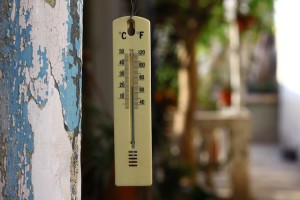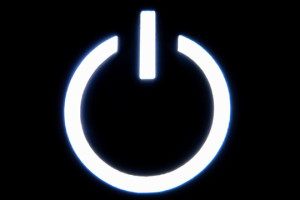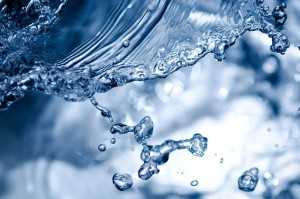Need help with pool heat pump troubleshooting?
Learn solutions to the most common pool heating problems in this post.
It’s easy to panic when things don’t work how they’re supposed, especially when that “thing” is your swimming pool heater. Without it, your pool can become way too cold to swim in, which doesn’t help you extend your pool season.
But here’s the good news:
A few small issues every now and then are perfectly normal for a pool heat pump that experiences regular use. And there’s plenty you can do about it.
As a matter fact, most pool owners can do basic pool heat pump troubleshooting for the majority of these common problems in just a few minutes. Granted, nothing takes the place of professional pool heater repair and proper pool heat pump maintenance, but these pool heat pump troubleshooting tips should spare a few headaches.
Want to troubleshoot your pool heater faster,
like a pro?
My pool heat pump isn’t working/turning on
A pool heat pump can stop working for a number of reasons, but for or now, let’s focus on the most common reasons:
Related: Pool Heater Won’t Turn On? Here’s What To Do
Air Temperature


 It’s no secret that air temperature plays a huge role in the operation of (air-source) pool heat pumps. It’s actually their main heat source in a sense. So without a reliable source of heat, a pool heat pump’s efficiency suffers. Some units will identify this error as “Low Freon pressure.”
It’s no secret that air temperature plays a huge role in the operation of (air-source) pool heat pumps. It’s actually their main heat source in a sense. So without a reliable source of heat, a pool heat pump’s efficiency suffers. Some units will identify this error as “Low Freon pressure.”
If a heat pump has a limit of 50 degrees before it powers down, attempting to operate the unit at any lower of a temperature simply won’t be worth the effort. On a good day, you may be able to get the heat pump to turn on, but expect efficiency and performance to be affected.
Power


 Faulty wiring, corroded connections, and even a tripped breaker can cause power issues for a heat pump.
Faulty wiring, corroded connections, and even a tripped breaker can cause power issues for a heat pump.
If troubleshooting extends beyond resetting the breaker, it’s best to seek out professional help. But if you’re the do-it-yourself type, DIY pool heater troubleshooting may be the perfect solution.
The air coming out of the heater is much colder than the air going in.
Normally, there shouldn’t be more than a 9 to 12 degrees Fahrenheit temperature difference between the air going in (evaporator coil) and out of the pump (fan). If the difference is higher, then there may be a few possible causes:
Filter Pump Run Time


 Your filter pump’s speed and operation directly affect your heat pump. Since the filter pump acts as a water source, it controls when the pool heat pump will run.
Your filter pump’s speed and operation directly affect your heat pump. Since the filter pump acts as a water source, it controls when the pool heat pump will run.
Most pools require the heat pump to be on anywhere from 6-8 hours per day (this number varies based on how energy efficient your pool set up is). Not giving your pool heat pump enough time to do its job can end up being quite costly, in both time and money.
Related: 7 Best Ways To Lower Your Swimming Pool Bills By Up To 50%
Obstructions


 Airflow is one of the most important parts of effective pool heat pump operation, so it’s important to make sure that the unit can “breathe” at all times.
Airflow is one of the most important parts of effective pool heat pump operation, so it’s important to make sure that the unit can “breathe” at all times.
The evaporator coil area is notorious for getting twigs and leaves stuck in its grates.
These obstructions slow down the heating process and make the unit work harder, creating a bigger pull on electricity. Save yourself the trouble and make a habit of keeping your pool heat pump obstruction-free.
Want to lower your swimming pool bills?
Water Flow
Out of all the problems you can run into, this is the one you’ll want to be the most vigilant about fixing. Steady water flow lets a pool heat pump run smoothly with no interruptions.
But take away a steady source of water, and your pool heat pump will start acting up. Of course, this is true for nearly all pool heaters.
That said, if you ever see a “High Freon pressure” error code, poor water flow is likely the reason why. Without proper water flow, a pool heat pump will take much longer to complete the heating process. And worse, running a heat pump without water can cause a lot of damage to the unit.
But ensuring good water flow starts with a clean filtration system. So check to see that all necessary valves are open and that your filter (and filter baskets) is clean and unclogged. Surprisingly enough, an unattended filter can build up some serious blockage that can cripple your water flow.
My pool heat pump is taking too long to heat the pool
How long your pool heat pump takes to heat your pool depends on a few factors – temperature, the size of the swimming pool, and the unit’s condition. Typically, a well-maintained pool heat pump will take anywhere from 24-72 hours to heat an average size pool about 20 degrees.
[Learn what affects your heat pump’s heating speed]
My pool heat pump is leaking.
Due to the nature of pool heat pumps (refrigerants, hot gas, etc.), owners can expect their units to produce a regular amount of condensate. That being said, an excessively large puddle of water around the unit may call for some pool heat pump troubleshooting.
To verify where the leak is coming from, first turn off the heat pump and continue running the pool pump. Wait a few hours and go back to check the water around the pump – if most of it has evaporated then you’re likely in the clear. However, in the chance that the puddle still remains, there a few more things you can do.
Test the water with a few drops of reagent (or test strips) to check for any chlorine content. Regular condensate will not test for any chlorine, therefore if chlorine is present, it’s safe to say that the leak is coming from the heat pump.
Closing Note
Although these pool heat pump troubleshooting tips should help with most common problems, there’s no substitute for professional expertise. If going through this guide hasn’t solved your particular issue, it may be a good idea to seek professional help troubleshooting your pool heater.
If you liked this post, you might also like:
- When To Service Your Pool Heat Pump
- 7 Cheap Ways To Heat Your Pool
- 21 Pool Care Hacks That Make Pool Maintenance Easy



Yeah we’ve been getting our pump clogged a lot lately. We just got our pool put in earlier this year and now that fall is starting to kick in, all the leaves are fluttering in from all over the place. That probably explains why our electric bill has been a little higher than normal (more so than in the past anyway when we first got the pool put in). I actually never thought that this could put a little more strain on the heat pump. Thanks for the article!
No problem, Cohen. We’re glad it provided some useful insight. Feel free to follow the blog. We’re always posting plenty of helpful content.
I have a focus temp XL HEAT pump that won’t come on the code it is showing is 210
Hi, Bill. Give us a call (407-786-0000), or shoot us an email from the contact page. We’d be happy to help get your heater back up and running
I just moved into this house. Pool has a Rome Model #125 heater. I want to heat spa; no need to heat pool, Florida is hot enough. But when I push “hand” button either it changes rapidly from pool to spa or from pool to locked and I have to keep unlocking it. Displays shows the pool temp at 86 and spa at 104 but water in neither seems to be heating. And I keep hearing the unit come on and then off. What am I doing wrong? Of course previous owners left no instruction manual. I’ve tried looking on-line for one but have been unsuccessful; only finding that company went out of business in March, 2012. PLEASE HELP!! Even calling (in spite of holiday) is fine. 630-888-8554. Thanks
Angela, thank you for your comment. A team member will get in contact with you shortly to help. Of course, you can always call us at 407-786-0000 and schedule a pool heater troubleshooting session at a time that works best for you. We look forwarding to speaking with you!
I just aquired an old Aqua Cal Heat Pump, at first it heated the water to 104 with no problem. There was a wiring problem that caused the breaker to trip, but I resolved that. Now it comes on for a short period and then turns off,
Thanks for your comment, Alfred. We’ll be reaching out to you shortly